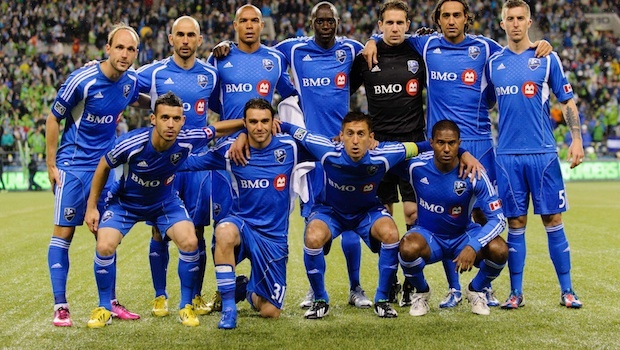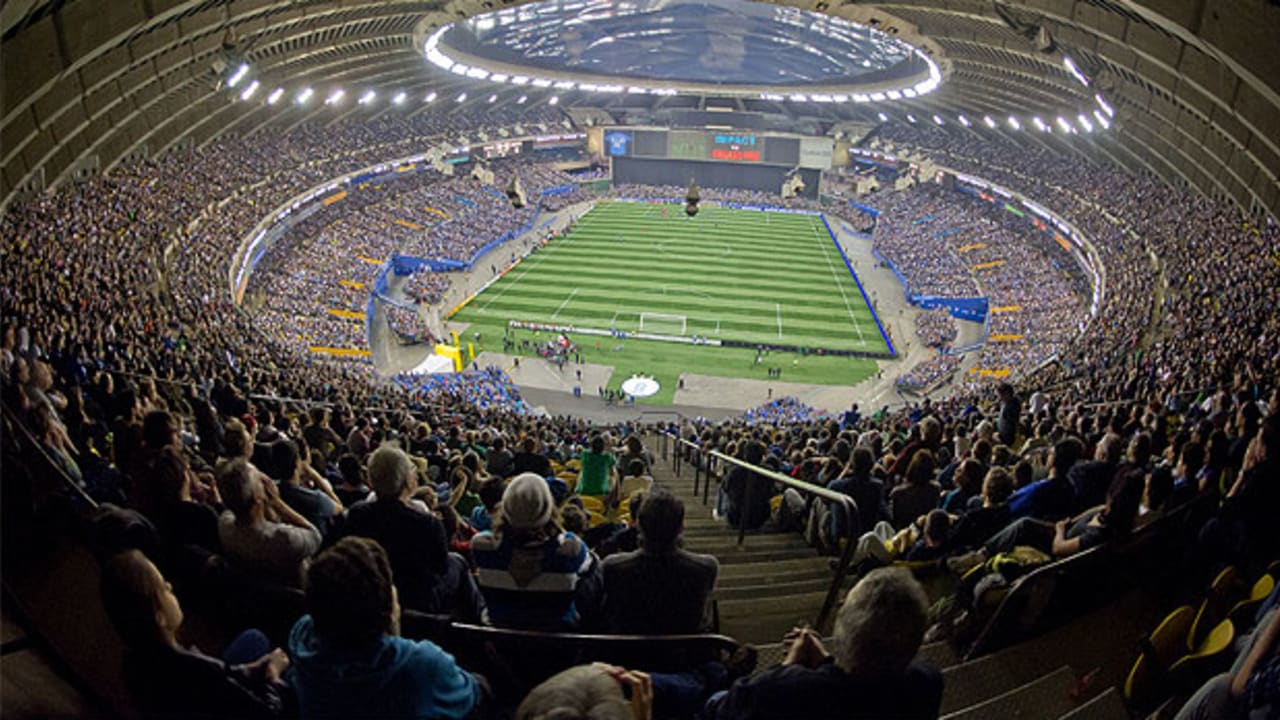MLS
CF Montréal: A Legacy of Passion and Resilience

CF Montréal: A Legacy of Passion and Resilience
CF Montréal, formerly known as the Montréal Impact, represents more than just a professional soccer club in Major League Soccer (MLS); it is a powerful symbol of the city’s cultural mosaic, resilience, and passion for the global game. Founded in 1992, originally as a club in the American Professional Soccer League (APSL), Montréal’s soccer identity has always been tied to the city’s bilingual heritage, diverse immigrant communities, and its proud embrace of sport as a unifying force. Over the years, the team evolved from an ambitious lower-league outfit into one of MLS’s most distinctive franchises, officially joining the league in 2012 as the 19th team.
The decision to join MLS was monumental, not only for Montréal but also for Canadian soccer as a whole. Alongside Toronto FC and later the Vancouver Whitecaps, Montréal brought a strong sense of regional rivalry into the league and helped strengthen Canada’s role in shaping MLS’s growth. Unlike some other expansion teams that struggled to build identity, Montréal immediately leaned into its deep soccer culture, shaped by Italian, Haitian, French, and North African communities in Quebec. This rich cultural fabric provided CF Montréal with a passionate fan base, whose devotion is reflected in the chants, tifos, and electric matchday atmosphere at Stade Saputo.
Montréal’s history includes several remarkable highs. The team won three Canadian Championships in its early MLS years (2013, 2014, 2019), cementing its status as a domestic powerhouse. Perhaps the most iconic moment in its international history came in 2015, when the club reached the final of the CONCACAF Champions League, only the second Canadian team ever to do so. Though they lost to Club América of Mexico in front of over 61,000 fans at the Olympic Stadium, the campaign marked Montréal as a serious force and boosted Canadian soccer’s credibility on the global stage.
The rebranding from Montréal Impact to CF Montréal in 2021 was met with mixed reactions. The club wanted to signal a new era with a more European-style identity, emphasizing “Club de Foot Montréal.” Critics, however, argued that the Impact name carried decades of history and emotional weight. Still, the rebrand symbolized Montréal’s ambition to align with modern football branding trends and to grow its reach beyond local borders. Today, the club continues to strike a balance between honoring its grassroots origins and pursuing a bold, international future.
Trivia:CF Montréal was the first Canadian club to reach a CONCACAF Champions League final (2015). The team’s original name, “Impact,” symbolized both its sporting aspirations and its desire to make a cultural impact in Quebec. Legendary forward Didier Drogba played for the club in 2015–2016, scoring 21 goals in 33 matches and transforming attendance and global attention.
Rivalries
Rivalries are the lifeblood of any soccer club, and CF Montréal’s story would be incomplete without its fierce contests against Canadian foes. The most heated of these is undoubtedly with Toronto FC. Dubbed the “401 Derby,” named after the highway connecting Montréal and Toronto, the rivalry embodies not just soccer competition but also cultural and linguistic tensions between Canada’s two largest cities. Matches often feature packed stadiums, vocal supporter groups, and high-stakes playoff battles. One of the most iconic moments came in the 2016 MLS Eastern Conference Final, where a record crowd of 61,000 watched Montréal and Toronto face off at the Olympic Stadium. Though Toronto ultimately advanced, the tie remains one of MLS’s most memorable playoff series.
Another significant rivalry is with the Vancouver Whitecaps, forming part of the Canadian “Cascadia” narrative. While less intense than the Toronto derby, matches against Vancouver still carry national pride and significance, especially in the Canadian Championship. Montréal’s rivalry with New York Red Bulls has also grown over time, fueled by intense playoff encounters and close regular-season battles.
Interestingly, rivalries for CF Montréal extend beyond geography and spill into cultural pride. Fans see the club as representing not just a city, but also Quebec’s French-speaking identity within North America. Victories against U.S. teams often carry added symbolism, reinforcing the club’s role as a cultural ambassador as much as a soccer competitor.
Trivia: The Montréal-Toronto rivalry is the oldest Canadian soccer rivalry in MLS, predating their MLS days when the teams met in Canadian Championship matches. The 2016 playoff clash between the two clubs drew the largest attendance in Canadian soccer history at the time. Supporter groups such as the “Ultras Montréal” are known for fiery tifos and sometimes controversial stances during derby matches.
CF Montréal: Ownership
CF Montréal is owned by businessman Joey Saputo, a name synonymous with both dairy production and soccer in Quebec. Saputo, whose family founded the Saputo dairy company, played a pivotal role in establishing professional soccer in Montréal and sustaining its growth. His leadership was instrumental in guiding the club from the lower leagues into MLS and in constructing Stade Saputo, the club’s soccer-specific home.
Under Saputo, the club has walked a fine line between cautious financial management and occasional bold moves, such as signing Didier Drogba in 2015 or Ignacio Piatti, one of the best designated players in club history. While the team does not have the financial muscle of some MLS heavyweights like LAFC or Inter Miami, Saputo’s management has prioritized sustainability and community connection.
The partnership with Bologna FC, an Italian Serie A club also owned by Saputo, has added a European dimension to CF Montréal’s player recruitment and technical development. This connection has facilitated player loans and exchanges, aligning Montréal with a broader global network. Still, the ownership has occasionally faced criticism from fans for limited spending on marquee players and for the controversial Impact-to-CF Montréal rebrand.
Trivia: Joey Saputo personally financed a significant portion of Stade Saputo’s construction. CF Montréal’s ownership connection to Bologna FC has been one of the most direct European-MLS partnerships. Fans sometimes refer to Saputo as “Mr. Soccer” in Quebec for his decades-long commitment to the sport.

Watch CF Montréal
Stade Saputo, located in the heart of Montréal’s Olympic Park, is the beating heart of CF Montréal. With a capacity of just over 20,000, it is one of MLS’s most intimate yet vibrant venues. Opened in 2008 and expanded in 2012 for the club’s MLS debut, the stadium was financed largely by Joey Saputo and designed specifically for soccer. Unlike multi-purpose venues, Stade Saputo brings fans close to the action, creating an electric matchday experience.
The stadium is unique in its proximity to the Olympic Stadium, a historic venue from the 1976 Summer Olympics. CF Montréal often uses Olympic Stadium for high-profile matches, especially those expected to draw larger crowds such as CONCACAF Champions League games or major playoff clashes. The 2015 final against Club América drew over 61,000 fans there, cementing its place in the club’s lore.
Stade Saputo is also notable for its atmosphere. Supporter groups like 1642MTL and the Ultras bring a European-style ambiance with drums, chants, and flags. The stadium’s location in a bilingual, multicultural city means matchdays often feel like a global festival, with fans conversing in French, English, Spanish, and Italian.
Trivia: Stade Saputo is named after the Saputo family, reflecting their financial investment and ownership role. The stadium underwent a $23 million expansion to meet MLS standards when Montréal joined the league. The view of the Montréal skyline and Olympic Park makes it one of the most picturesque settings in MLS.
CF Montréal: This Season
The 2025 season for CF Montréal is a mix of cautious optimism and lingering challenges. Under the guidance of head coach Laurent Courtois, the team has sought to balance development of young Canadian talent with strategic international signings. Montréal has placed emphasis on its academy pipeline, aiming to nurture homegrown stars who can embody the city’s identity on the field.
On the pitch, CF Montréal has leaned on a flexible tactical setup, alternating between a back three and back four depending on opposition. Key players include captain Samuel Piette, whose leadership and midfield control remain central, and rising Canadian forward Sunusi Ibrahim, who has shown flashes of becoming a consistent scorer. In addition, designated players brought from abroad have provided creativity and pace, though inconsistency remains a concern.
Results this season have been mixed. The club has shown resilience at home, buoyed by its passionate supporters, but struggles on the road have hampered playoff ambitions. Injuries to key defensive players have also tested the squad’s depth. Nevertheless, Montréal remains in the playoff hunt, and with a strong summer transfer window, it could mount a late-season push.
Trivia: Montréal is one of only three Canadian teams in MLS, making every season’s Canadian Championship campaign particularly important. The team’s academy has been a steady pipeline for Canadian national team players. Samuel Piette, a Québec native, is one of the few players who truly embodies the “local hero” identity.
CF Montréal: What to Follow
Looking forward, CF Montréal is at a crossroads. The club’s ambitions are clear: to consistently compete for MLS playoff spots, to grow its academy into one of the best in North America, and to strengthen its cultural identity as a Francophone soccer powerhouse. The challenge lies in balancing financial prudence with fan expectations for star power and results.
Supporters should watch for the continued development of young players like Ibrahim, Ismaël Koné (if retained or on return from Europe), and academy graduates. Montréal’s role in Canadian soccer is also set to grow, especially with Canada co-hosting the 2026 FIFA World Cup. Montréal will likely play a major role in welcoming global fans, and CF Montréal stands to benefit from the surge of interest and infrastructure investment.
Off the field, the club is still navigating its identity post-rebrand. Will the CF Montréal brand solidify and win over long-time Impact loyalists, or will fans continue to long for the old name? This cultural storyline is just as important as on-field results.
Trivia: Montréal has hosted some of the largest soccer crowds in North America at the Olympic Stadium. Didier Drogba’s arrival in 2015 remains one of the most influential single-player signings in MLS history, boosting attendance and global visibility. CF Montréal is the only MLS team with a fully French branding identity, reinforcing its unique place in the league.
